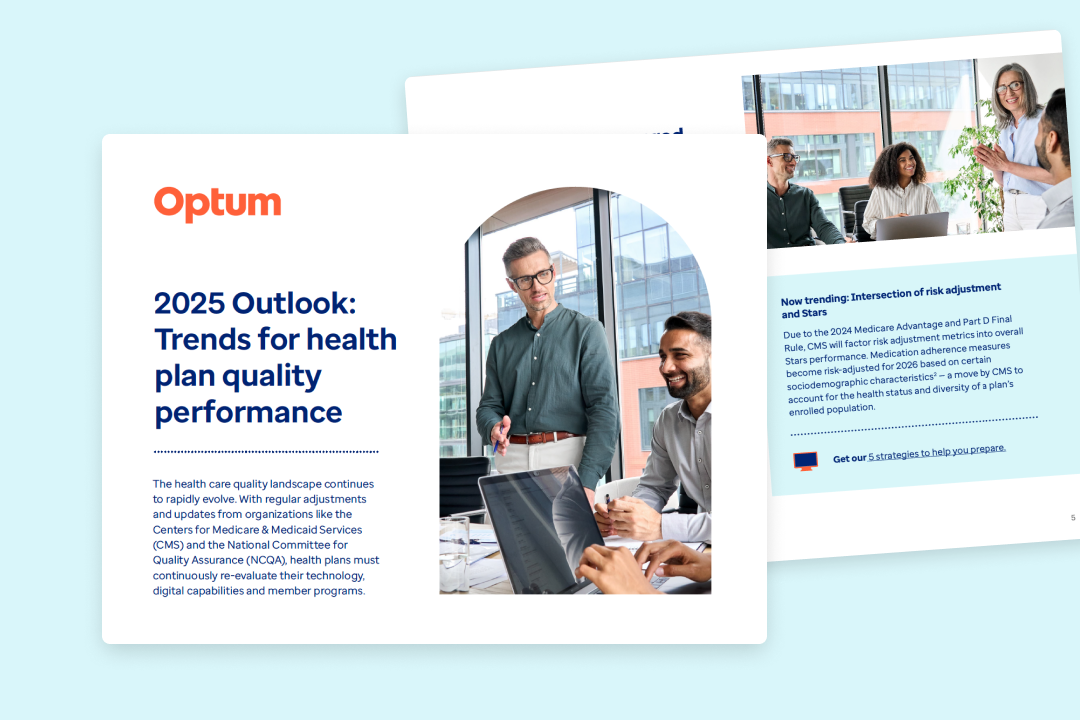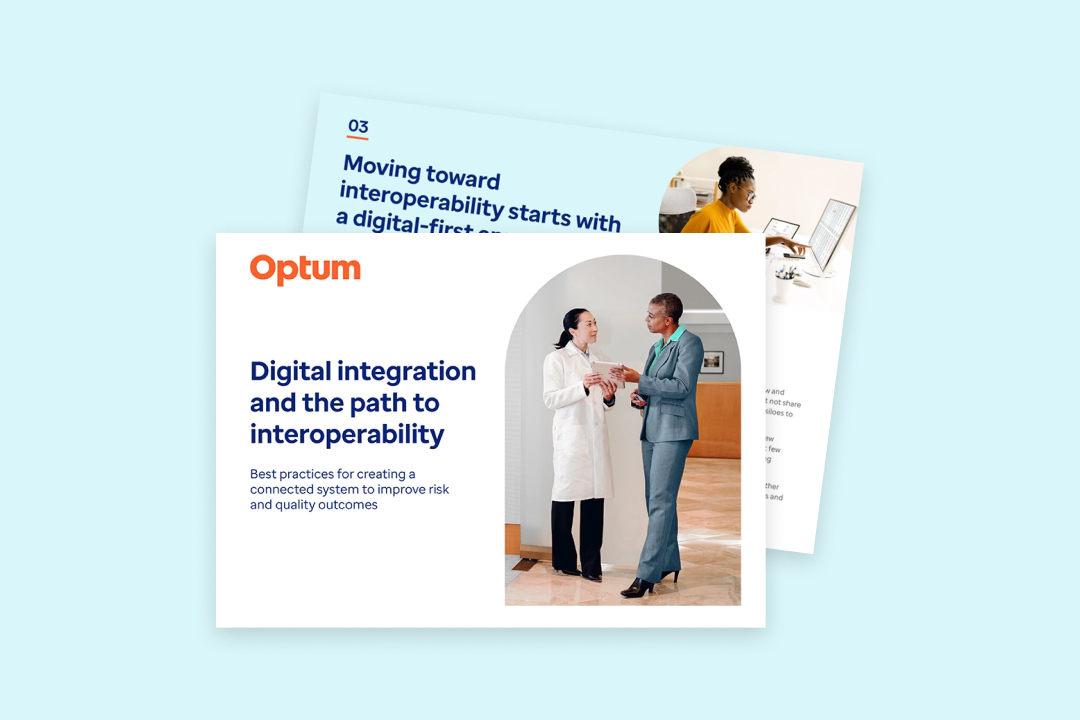Digital quality solutions that drive better patient outcomes
I was recently asked why I’m excited to work in quality, and without hesitation, I responded, "the opportunity to help improve member care."
While risk adjustment helps identify conditions or probable conditions a member might have based on historical claims data, quality ensures that these conditions are managed effectively. This includes ensuring that members receive the necessary follow-up and support.
Focusing on quality helps to improve patient outcomes, reduce hospital readmissions and enhance overall health.
An effective quality solution is centered around a member-first approach, offering comprehensive, end-to-end quality solutions from pre-encounter engagement to post-encounter support. Digital connections make it easier for providers to adopt and implement these solutions, thereby improving the overall quality of care. Integrating analytics and AI capabilities into every step of the process — from pre-encounter to point of care and post-encounter — allows for more effective gap identification and closure. Analytics help us understand member needs and provide targeted education and assistance, helping to keep members well-informed and actively engaged in their healthcare journey.
This digital transition is crucial for health plans and providers to stay ahead and ensure they are delivering the highest quality of care. As the industry moves towards this new paradigm, the question remains: who will be the first mover?
At Optum, we have already taken the first step by introducing services that facilitate the transition away from hybrid reporting. This means we can provide year-round quality services with a digital-first focus, leveraging EMR connections and HL7 Fast Healthcare Interoperability Resources (HL7 FHIR®) data directly. This is one of our key service offerings, designed to ensure that quality measures are captured and managed more efficiently and accurately.
In addition to our service offerings, we have also initiated our Clinical Quality Language (CQL) journey for our engine. This ensures a seamless transition to a digital focus, moving from traditional engines to a CQL-based engine. We are partnering with National Committee for Quality Assurance (NCQA) and other innovation and research partners to develop a CQL solution that works best at scale.
While Optum is well-known for its risk adjustment solutions, we are also a leader in quality innovation. We have significant experience in the industry and a deep understanding of quality and regulatory requirements. Our certification and expertise help to keep our solutions compliant and effective. We are heavily invested in the digitalization of quality solutions, incorporating advanced analytics and AI capabilities. This includes AI auto-abstraction, member propensity scoring and predictive insights, all of which are designed to enhance the quality of care.
At Optum, we are always innovating and have solutions that truly make a difference in the lives of our members. Our commitment to digitalization, advanced analytics and AI helps us provide the best possible quality solutions to our health plans and providers.
Related healthcare insights

Article
Learn how AI, interoperability and ECDS are transforming healthcare quality reporting and the solutions that can help you stay ahead.

Guide
Learn how health plans can stay ahead of the curve and prepare for key trends likely to impact their quality programs in 2025 and beyond.

E-book
Creating a connected system to improve risk and quality outcomes.
HL7®, and FHIR® are the registered trademarks of Health Level Seven International and their use of these trademarks does not constitute an endorsement by HL7.

